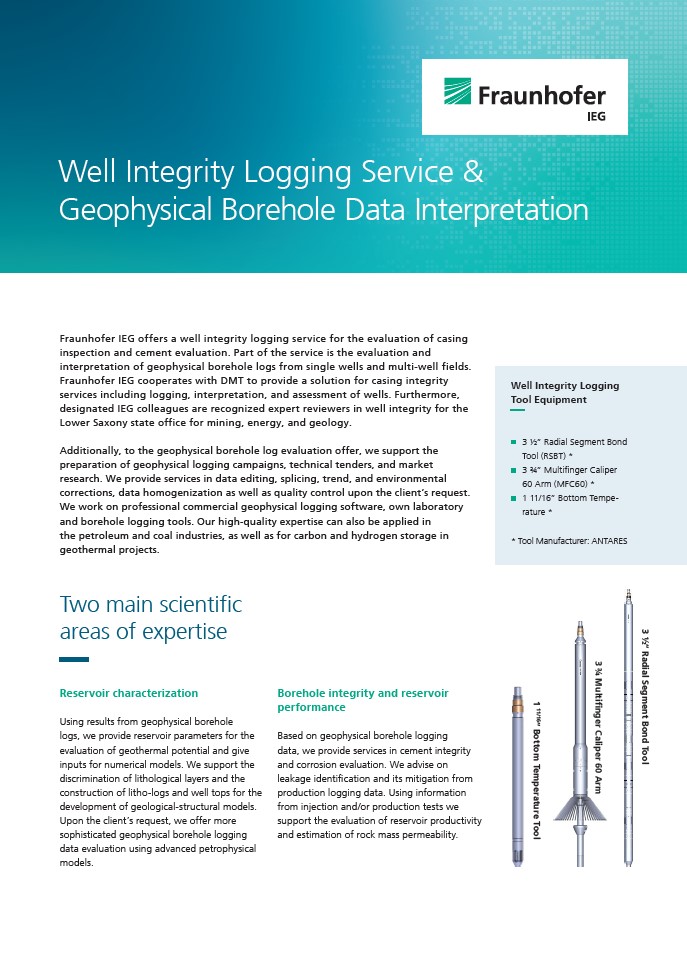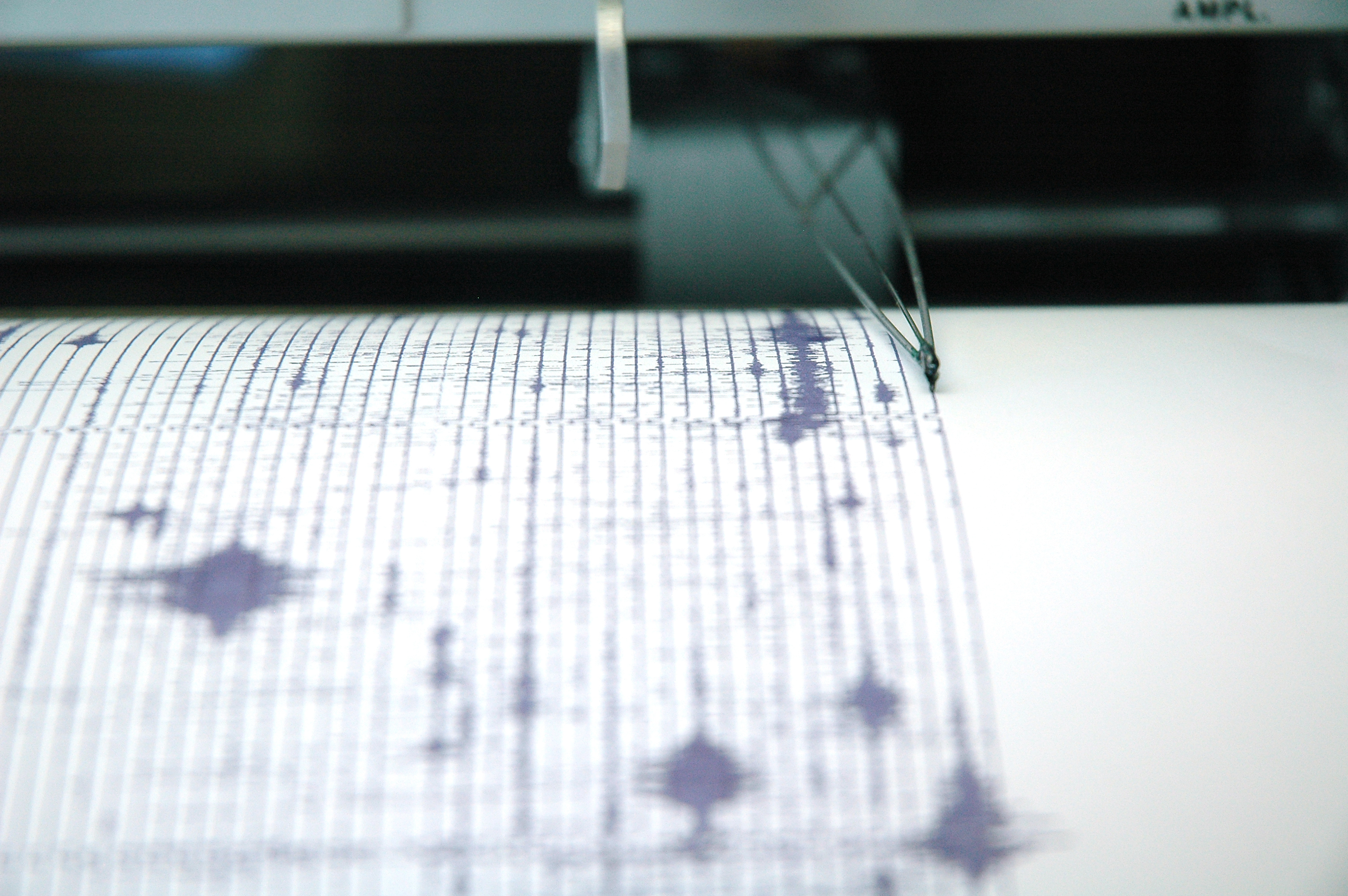Our Competence Centre »Reservoir Geophysics« offers services in the field of geomechanical modelling and reservoir geomechanics as well as microseismic hearth localisation and characterisation. With the help of passive seismic methods, seismic risk analyses and seismic modelling over all size scales are offered. Another main topic is digital rock physics and the characterisation of fractured deposits. In laboratory experiments, we offer studies of hydro-mechanical coupling as well as petrophysical rock characterisation, such as elastic, inelastic, thermal and hydraulic rock properties under (simulated) in situ conditions.
In order to assess the economic viability of a geothermal project, a reservoir model must be developed for the geological conditions at the site. This model is usually based on seismic exploration or borehole geophysical measurements. Subsequently, the best possible development and extraction from the deposit is simulated. Small-scale field tests that confirm or optimise the simulation are also very useful in the analysis. These can be, for example, production and injection tests that characterise the hydraulic properties of the reservoir. On a small scale, laboratory tests can be carried out with reservoir rocks and different fluids in order to optimise the utilisation.
These results ultimately decide on the successful hydrothermal utilisation of the reservoir. By combining the methods, bridges can be built in the understanding of geothermal processes on different length and time scales. The complete package of reservoir model, reservoir simulation, field tests and laboratory experiments is offered at the IEG from a single source.
Reservoir Geophysics
Equipment
The »Reservoir Geophysics« department is broken down into the laboratories for geotechnologies and seismic monitoring. The following equipment is available:
- X-ray microtomography (µCT)
- ThermoTriaxial press
- Core-flooding experiments
- Seismic range observatory
- Geophysical bore hole logging tools
- Geochemical and hydrochemical laboratories
Services
Evaluation and interpretation of geophysical borehole logs

Fraunhofer IEG offers services in the field of evaluation and interpretation of geophysical borehole logs from single wells and multi-well fields specifically for geothermal energy utilization projects.
Contact us:
Dr. Maria Chatziliadou
+49 234 33858-180
maria.chatziliadou@ieg.fraunhofer.de
Measuring probes provided
We work with the measuring probes purchased from Antares. You can get an overview of the technical specifications of these probes here:
